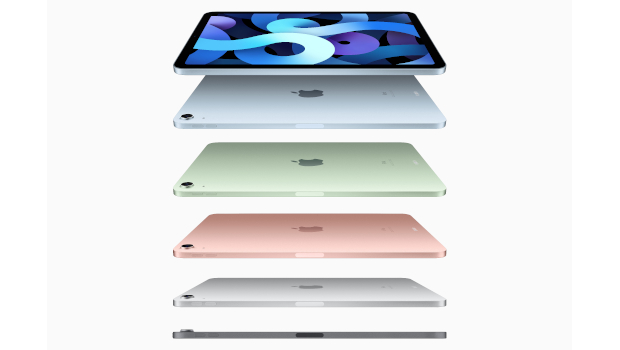
Tablets still lack the class of PCs
Here’s a question for you: do you count tablets as PCs or don’t you?
I must confess to being uncertain myself as to the answer. A few years back, I wrote a column arguing that tablets would take the place of laptops for a lot of tasks. I predicted that by the time my eldest daughter got to university, most students would be using tablets as their main computing device.
Here we are in 2021, my two elder daughters are at university and they’re both using notebooks. So there you go.
Does that mean tablets aren’t PCs? I suppose it depends if you’re in a position to choose between buying a notebook or a tablet. It’s also about what you need to do with the device you buy. There are some people who may find a tablet is more suitable for most of their daily computing tasks. For them, to all intents and purposes, a tablet is a PC.
For other people, a tablet just isn’t cut out to do the job and the only way to make it so requires adding peripherals, such as a keyboard, that end up partly converting it into a notebook.
But maybe we shouldn’t get hung up on what the device is, per se. Perhaps we should think more about what the acronym PC stands for: personal computer. It doesn’t stand for desktop computer. That may be where it came from but that’s not where it ends.
So there’s no logical reason why your personal computer couldn’t be a desktop, a notebook or a workstation. Or a tablet, for that matter.
But if we accept that PC is about the personal, what does that mean for our perspective of the PC market.
If you want to get an idea, Canalys has helpfully provided figures for worldwide PC shipments in 2020 with and without tablets.
Let’s start with the figures that don’t include tablets because they’re probably more familiar. They show that Lenovo was the number one supplier of desktops, notebooks and workstations last year, growing by just under 12% to 72.6 million units. HP followed in second with just under 67.8 million, Dell was third with almost 50.3 million, Apple was in fourth place with close to 22.6 million and Acer came fifth with 20 million.
It’s fair to say there are no surprises in the top three positions because those companies have dominated the traditional PC market for years. They might change positions every now and then, but the names remain the same.
Place holders
What’s interesting is that when you add in tablet shipments, things don’t really alter all that much. The most dramatic change is that Apple jumps from fourth to second place because of its dominant position in the tablet market. Unit shipments surge by 260% from 22.6 million to 81.4 million.
But Lenovo still holds on to top spot, HP drops to third, Dell is fourth and Samsung ousts Acer to take fifth place. If you look at the tablet market on its own, Apple is top, Samsung is second and Lenovo is fifth. Huawei and Amazon are third and fourth respectively. So three of those names are common to the top five for tablets and combined shipments for all devices.
If you think about it, the market positions for global PC shipments including tablets aren’t that much different compared to those without them. If anything, the top five table for worldwide tablet shipments is the outlier because it doesn’t include Dell or HP.
That begs the question, would it really make all that much of a difference in the great scheme of things if tablets were categorised as PCs?








Subscribers 0
Fans 0
Followers 0
Followers